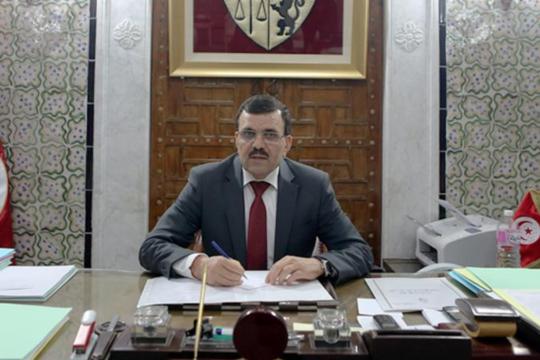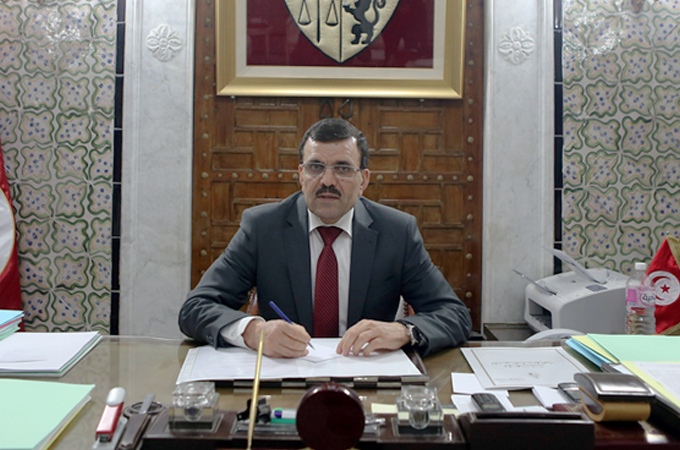
 |
Although it has been over a month, the debate about Tunisia’s new government and priorities in the face of the demands of the transitional phase has not come to an end. The selection of the new cabinet (announced by the new prime minister and former interior minister, Ali Laarayedh, on 8 March 2013) followed painstaking consultations with political parties and national figures after the resignation of former prime minister Hamadi Jebali. The new government won the confidence of the constituent assembly by 139 votes. Seventy percent of the members of parliament, 197 in total, voted for the cabinet.
The second troika government came with great difficulty in a political climate more complicated than that which surrounded the formation of the first troika government after the 23 October 2011 election that was headed by Jebali. This time, its formation was preceded by an unprecedented rise in political tension after the assassination of the leader of the oppositional leftist Popular Front, Chokri Belaid. The assassination caused intense polarisation between the government and the opposition and forced Jebali and his government to resign. In light of such a climate, Laarayedh’s government reflected the current balance in Tunisian political life between two opposing ideologies.
The ruling coalition of the Islamist Ennahda Party, the centre-left Congress for the Republic and the centre-left Ettakatol Party intended, by forming the new government, not only to stay in power but also to broaden the base of governance by integrating other political parties and attracting national non-partisan figures and other parliamentary blocs in the constituent assembly. Five parties participated in negotiations for the formation of government. Aside from the ruling troika, it included the Wafa movement and the Freedom and Dignity bloc. The intention of the opposition (led by the Popular Front and the Alliance for Tunisia) has been to bring down the government and reshape the political landscape in a manner contrary to the results of the constituent assembly elections.
Maintaining a Fragile Balance
The formation of the new government has cast light on the delicate balance between those in power and those in the opposition. The troika was able to survive despite harsh criticism and repeated attempts to dismantle it. However, it failed to expand its partisan base. In order to compensate, and due to pressure from the opposition, it freed itself from having to control sovereign ministries in favour of independents. The opposition benefitted from extracting concessions from the government. Nevertheless, it failed to topple the ruling coalition – its original objective – and realised that it was no longer possible to restructure the political landscape or change the rules of the political game in what remains of the transitional phase.
These are the main features of the current Tunisian political scene whose parameters appear to have changed from the previous tripartite government.
In addition to the prime minister, the new government includes ten state secretaries and 27 ministers. Nine of these are new ministers. This composition indicates a delinking of the sovereign ministries – interior, foreign affairs, justice and defence – from political parties. This has always been one of the opposition's demands but had been rejected by the government. Ennahda and the Congress for the Republic refused to heed this demand on the basis that they headed a popular government and that this phase of Tunisia’s history requires a government based on party affiliation. There are several reasons why neutralising the ministries in this manner and at this stage and having them be led by independents accepted by the various political forces was important:
• The reconciliation of parties and the elimination of acute polarisation between both sides – the opposition and the government – occurred because, firstly, the opposition viewed it as a means of achieving one of its basic demands and extracting a painful concession from the ruling coalition, especially Ennahda which had punted the notion of the "natural right of the majority party," and secondly, Ennahda was able to deny the assertion that it handed over the sovereign ministries due to pressure from the opposition. It claimed, rather, that it did so for national interest as it alleviated the severe tension in the country and helped create suitable conditions for the next election. These new appointments also helped eliminate the reasons given by the opposition for an election boycott and quashed any doubt regarding the elections' integrity. President Moncef Marzouki and president of the constituent assembly speaker Mustapha Ben Jaafar confirmed this explanation. As such, the troika left the crisis with a less harmful, more coherent and more consistent vision to meet the challenges of the next phase with.
• Although most ministers retained their positions, one-third of the government's ministers are new, which is sufficient to give a sense of mobility within the government and provide a sense of progress in the government’s vision. It will also assist in addressing and managing certain challenges and portfolios, especially those that previously caused the most controversy. Similarly, half of the new government consists of independent ministers; some are in sovereign ministries and others in more technical ministries. This balance between independents and party-affiliated ministers created a new dynamic. Through political practice, it will modify the partisan agendas of the parties in the ruling coalition and provide the coalition with a national character.
This balance between politicians and independents in Laarayedh’s government does not, however, indicate the existence of other forms of balance that could have expanded the government’s social base. The representation of women, for example, is now confined only to the Ministry of Women. There is also reduced regional representation, especially of the inner regions, despite the fact that the prime minister himself hails from the south. Another absent demographic is youth, who could offer additional social support if given political representation. The configuration of the government, the nature of the balances that were taken into account during its formation, its programmes, and its ability to fulfill its promises in the face of the challenges of the next stage will determine its acceptability to the people.
The Challenges of Ending the Transitional Phase
Laarayedh announced that his government will dissolve at the end of 2013 and declared its four major four major priorities as:
1. Rapidly creating suitable conditions for the next election.
2. Establishing comprehensive security and tackling crime.
3. Developing the economy, increasing employment and limiting inflation.
4. Adopting anti-corruption measures, accountability, providing general amnesty, and effectively dealing with the issue of revolutionary martyrs and the wounded.
There is no fundamental disagreement about these priorities among most political forces. The real challenge, however, lies in the preferred order of these priorities and the realisation of concrete achievements in the next nine months.
If Laarayedh’s government succeeds in holding elections in the remaining period and successfully hands power over to a new government, Tunisia may complete its transitional phase in accordance with the road map drawn by the High Council for the Realisation of the Goals of the Revolution. Nevertheless, such an achievement faces many challenges that are not completely under the government’s control. The most important of these are determined by the agenda of the constituent assembly, with the completion of the drafting of the constitution and the establishment of an independent supreme body for the elections being of highest priority.
The security situation remains key to the success or failure of any government that aims to take meaningful action on the ground in such a short period. It needs to be stabilised for various reasons, especially during a transitionary phase in which the state withdraws from performing certain functions and political control of security structures declines because they are regarded as a pillar of the previous regime. Turmoil has the potential to abound, security may dissipate, and chaos could be interwoven into freedom. Security stabilisation is also essential in fulfilling other goals.
Governance during the period of the great political tension that arose after the assassination of the leading leftist, Chokri Belaid, and subsided after the resignation of Jabali’s government remains largely dependent on the ability of the new government to control the security situation. This is due particularly to the possibility of the outbreak of violence at any moment. In recent days, calls to overthrow the government and threats to use all means possible to achieve this, have continued. Such calls were made by groups on the far left (including Popular Front leader Hamma Hammami), and groups on the far right (including Abu Ayadh, the leader of the Salafi jihadists). There were also a series of clashes between the security apparatuses and armed groups in a number of areas.
The security situation may become more serious with the spread of weapons in different parts of the country, including in and around the capital, despite the tightened control of smuggling routes through border areas both in the south and the west. If Tunisia turns into a transit area, it may fall into the hands of groups that espouse violence and oppose, in principle, the existing political legitimacy. This can cause the fragmentation of the remaining transitional phase, especially if social movements that begin to affect larger areas return.
The new government can temporarily calm the social front through agreements with the Workers Union and its sub-agencies. This, however, will not be enough without a strict policy regulating the soaring prices of consumer goods affecting new social strata and causing growing public indignation. High prices are attributed to smuggling, which is no longer limited to certain types of industrial materials. In fact, it has expanded to include an infinite number of consumables, including materials that are subsidised by the state. Some regulatory measures may occasionally modify the market's movement and reduce, to some degree, the high cost of certain materials. Smuggling routes that have branched out after the revolution, and which are now controlled by specialised networks, remain a pressing challenge for the security forces and the government.
Laarayedh’s government has taken the first step toward achieving its goals by neutralising the sovereign ministries, specifically the ministries of interior and justice. Such a move provides one of the most important guarantees for fair and transparent elections. This minimises the options for those who are doubtful of this or seek to discredit it. The element of neutrality aims to realise equality between competing parties. The completion of the constitution including formulation, debate and acceptance and the establishment of revisionist bodies including elections, media and the judiciary will take place when the head of the constituent assembly, Mustapha Ben Jaafar, announces the elections. He designated the final quarter of this year for legislative and presidential elections. This will end the transitional period and open the door for the establishment of a lasting and stable political system. Between the first quarter of the year during the formation of the government, and the last quarter of it, around election time, the obstacles of the transitional phase will continue under the troika rule that emerged from the crisis of Belaid’s assassination. The obstacles are political, social, and economic. The achievement of progress in any of these areas, however, remains dependent on the improvement of the security situation and the anticipation of surprises.